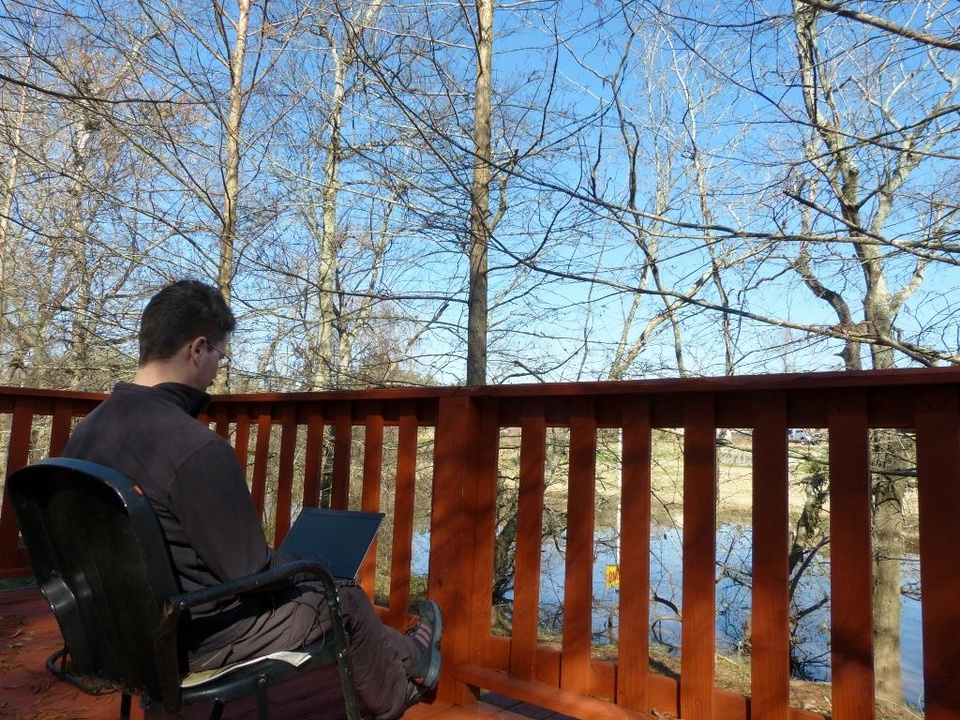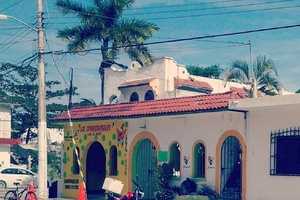There is no free wifi
One question that people ask us often is about the quality of the internet connection in different places. Can you really do your work in those places? How fast is the connection? According to the logfiles on my laptop I have used, or tried to use, 143 different wifi networks during the last one and half years. On my tablet the number is probably even bigger. So, I've got experience on the issue, and I'm sharing some of it here.
In short: Yes, it's possible to get to the Internet almost anywhere and get work done.
In long: The answer really depends on the kind of work that needs to be done. Some tasks require a steady and fast connection and others can be done without. It's actually quite amazing how many things you can get done even with a crappy connection. It's not always fun, but it's possible. This post was inspired by the fact that by the time of writing this we've been in Mexico and had some bad luck with our internet access. Just as an example, we have now been in Playa del Carmen for a week waiting for the connection at our house to be fixed.
Free
Let's say you book a hotel room having "Free wifi" on the internet. At the arrival you find out it doesn't really work in your room. Or you go to a cafe that advertises free wifi. You get your expensive special coffee with extra foam on top and open your laptop. When connecting to the network you find out that a) the wifi doesn't work at all, b) the free is limited to a time such as 30 minutes or one hour, and/or you need to fill out some obscure registration form. Not too many coffee shops are happy about you spending the whole day there and having just one drink either. You might end up paying quite a lot for your "free" wifi.
Security
Ok, you find a wifi. Are you sure you want to connect to an insecure network? Wifi security is a topic that I've noticed often divides people into two main categories: those who don't care, and those who care a bit too much. I've personally been in both extremes and lately tried to settle somewhere in the middle. Many sites that we use on daily basis such as Google, Facebook and Twitter use secure connections. That means that even if the wifi is unprotected your web traffic is. We do occasionally use a virtual private network (VPN) for additional layer of security.
Reliability
You decide to connect to the network only to find out it doesn't work. Wifi access points are notoriously unreliable. Many times you need to switch the box off and on once in a while even if it's just you who is using the network. Take the situation to a hostel where there are many people coming and going with multiple devices and the rebooting of the wifi-boxes becomes a daily ritual. Fortunately, this is one place where you actually can do something about it. If the laptop is not connecting to the wifi or it seems to be connected but you still can't load any pages, it's time to call someone to fix it. Chances are that it's not the first time and you don't even have to explain much. I may have sometimes lost my patience and just went to find the box and switch it off and on myself.
Network cables seem to be a thing from the past. During the last year we used a cable to connect to the net just a few times, mainly as a backup when the wifi was down. Even if it's not usually even possible to use a cable, I still carry one with me all the time. It has saved my day a few times, when the wifi has been down or my laptop has had problems connecting to it.
Speed
The speed of the net is one of the most frequently asked questions, but I actully consider this to be one of the least important factors. It is also not always clear what the speed means. In the very first hostel in Kuala Lumpur we had a 1Mb/s connection. There were only a few other guests so it was practically all for us. Video meetings to Finland? No problem. There may be businesses where faster speed is necessary, but for most practical purposes 1Mb is enough for us. We try to time big file transfers for those times we do get a fast connection.
The wifi is not good or bad, only thinking makes it so
This week has been the worst in terms of internet access during the all these 400+ days. We had it better even in our beach bungalow in Cambodia where the electricity was in short supply and the whole village used the same single 3G-connection to connect to the outside world (well it felt like that anyway). Today a friend was asking on Facebook whether an 8M connection would be enough for remote work. The question felt so absurd to me that it gave me the motivation needed to finish this post.
The more we've been renting apartments or houses instead of hostel or hotel rooms, the happier I've been with the connection. We've also now better adapted to the situation and I've learned to do most of my programming and analysis work offline. A constant internet access can also be a major source of distractions and learning to live without it has taught me better and more productive working habits. Time off the grid can have some unexpected consequences, too. This time I found myself starting a book writing project. Let's see if the writing super powers stay long enough for me to actually finish it this time. Maybe I don't even want to get our connection fixed just yet?

We are Mirje and Antti, a 30+ digital nomad couple, entrepreneurs with restless feet and passion for experiencing the world. more »


